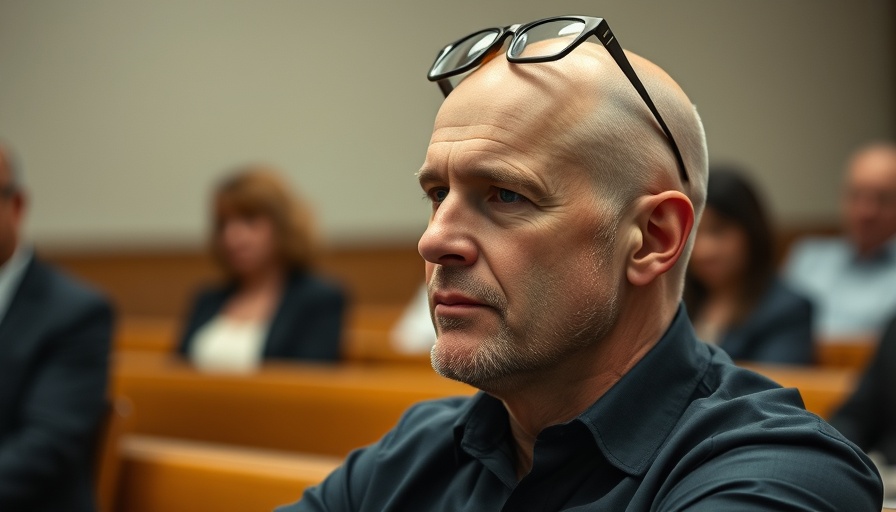
A Controversial Acquittal on Charges of Voter Suppression and Impersonation
This past Friday in New Hampshire, the jury reached a surprising verdict acquitting Steven Kramer, a political consultant, of all charges related to artificial intelligence-generated robocalls impersonating former President Joe Biden. Accused of complicity in a scheme that prosecutors claimed undermined the integrity of the election process, Kramer was found not guilty after jurors deliberated over 11 counts of voter suppression and candidate impersonation.
Understanding the Robocalls: The Technology Behind the Controversy
Kramer’s robocalls, which were sent to voters just two days prior to the New Hampshire primary, featured an AI-generated voice replicating Biden's recognizable lingo. The calls cautioned voters against participating in the primary, suggesting they should save their votes for the general election in November. While the defense characterized these calls as a wake-up call about the emerging technology of AI, prosecutors painted a different picture, arguing that it constituted a serious attack on the electoral process.
Legal Arguments: A Battle of Perspectives
Central to the trial was the interpretation of New Hampshire's voter suppression laws and whether Kramer had indeed impersonated a candidate. Kramer's defense emphasized that the primary election was not officially recognized by the Democratic National Committee (DNC), thus undermining the applicability of voter suppression laws. Importantly, since Biden had not officially declared his candidacy for the primary, the defense argued he could not have been impersonated.
Sparking Conversations on AI in Politics
Kramer openly admitted his goal was to spark a conversation about the rapidly evolving role of AI in the political landscape. He believed the potential for AI to mislead voters needed serious consideration, especially in an age where technological advancements outpace regulatory frameworks. Kramer's efforts might serve as an odd turning point in discussions surrounding election integrity and technological influence.
The Future of AI Regulation in Political Campaigns
As Kramer leaves the court free of criminal charges, the implications of his case extend far beyond the courtroom. New Hampshire's Attorney General, John M. Formella, emphasized the state's commitment to enforcing election laws. However, the evolving nature of AI tools demands a comparable evolution in regulatory measures. The Federal Communications Commission (FCC) is reportedly working on new guidelines to address challenges presented by AI, revealing the necessity for legislative development in this area.
Public Response and Implications for Future Elections
Kramer maintained his stance, asserting he wouldn’t pay a looming $6 million fine imposed by the FCC, bringing further publicity to the contentious subject of AI in political discourse. As various states initiate legislation regulating AI deepfakes, this acquittal could derive mixed responses and critically affect future elections. Can such technology be effectively regulated? How can the integrity of elections be safeguarded when innovations in AI are ubiquitous and, at times, unregulated?
What Can We Learn from This Case?
Kramer’s trial illustrates the necessity for clear legal frameworks concerning the use of technology in political campaigns. With elections becoming increasingly complex and influenced by new technologies, it is crucial for legislators, candidates, and voters to stay informed about the implications of these advancements. This case serves as a wake-up call for citizens, particularly in areas like Bakersfield, CA, where voter engagement and awareness are foundational to democracy.
The Next Steps for Voters and Regulators
In light of these developments, the call to action is clear: it is imperative for voters and concerned citizens to advocate for transparent regulations governing AI in politics. Understanding the nuances of technology and how it can influence elections will empower voters and ensure a healthier democratic process. Every individual has a role to play in protecting the integrity of their electoral system, making it vital for everyone to educate themselves on these evolving issues.
 Add Row
Add Row  Add
Add 



Write A Comment